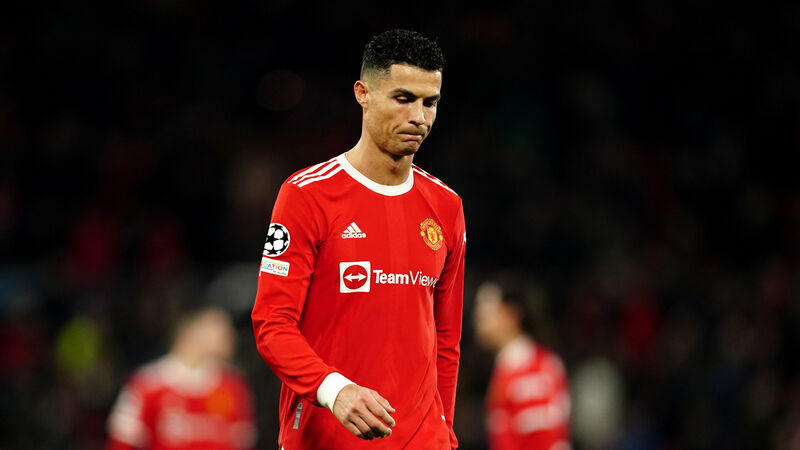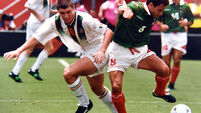Graham Cummins on how players cope when their big transfer falls through

Manchester United's Cristiano Ronaldo had been looking for a way out of the club. Picture: PA
WITH the transfer window shut, now can be an unusual time in a dressing room.
Players who have got the move they pushed for months will be eager to shine at their new club, while others will be monitoring just how good the new signings are.
There is also the difficulty of managing those who never got their wish. The players that remained at a club when they clearly wanted to and expected to be with another team. Dealing with those players can be the most challenging task.
Players in the dressing room won’t hold a grudge against a teammate who couldn’t force through that transfer. They will understand that football is a short career and that each player does what is best for them. In fact, they have been probably advising the player on how best to conduct himself in order to seal his dream move.
Once rumours of a player leaving occur, it’s not something that will be kept quiet in the dressing room. If a player is the subject of a transfer bid, then his teammates will quiz him to find out more information. Players will ask advice from teammates, who have found themselves in a similar position in the past, what they should do to persuade the club to let them leave.
Sometimes, and more often than not, players looking for a move away are told by teammates that they cannot stand idly by and wait to see what happens and that they must take action to force a move.
Normally, the first step for a player should be to discuss his position with his manager but if that doesn’t work, he must then go above his manager’s head and talk to the owners or board. This can cause a broken relationship between player and manager because the manager will obviously be unhappy that the player feels he can force through a move behind the manager’s back.
If the player does remain; there is no guarantee they will be the same player they were. In most cases, they will still be desperate for a move and will feel that that opportunity will arise again in the next transfer window. The chasing club will probably give the player reassurance that they will be back in for him. That could cause the player to be more careful in the way he trains and plays.
They may be fearful of going in for challenges in matches that he usually would have in case he were to pick up an injury that could jerpordise his move.
They also could be less willing to put their body through the demands that are required because it can leave them more open to a muscle injury if their body is fatigued.
However, that can be a risky game because those tactics are obviously going to make the player perform worse which might turn off potential suitors. Even if the player has been told by his agent that he has been guaranteed the pursuing club will come back in for the player, that can change very easily.
UNDERPERFORM
Were the player to start to underperform because he is concerned about taking care of himself so as not to harm a move, potential future clubs could be put off. That player might have been the club’s number one target but they will also have identified other players who were their second or third-choice preference, and will still be monitoring them. They could be swayed to abandon their pursuit of the player if he starts to underperform.
The manager has a few options with how to handle a player who may be feeling sorry for themselves that they never got that move. They could ignore the situation or banish the player to the underage team, which aren’t good ideas because the player is still disruptive.
The best way to get that player back onside would be for the manager to sit him down, explain how valuable he is to the team and perhaps even offer the player a new contract with an increase in wages. That way the player does not hold a grudge against the club and could end his ambition of leaving because he has received a pay increase, which is the main reason behind a lot of transfers.
It’s difficult for any player to see a dream move collapse and managers must tread cautiously around them if they want the player to continue to be a top asset for the team.










 App?
App?










